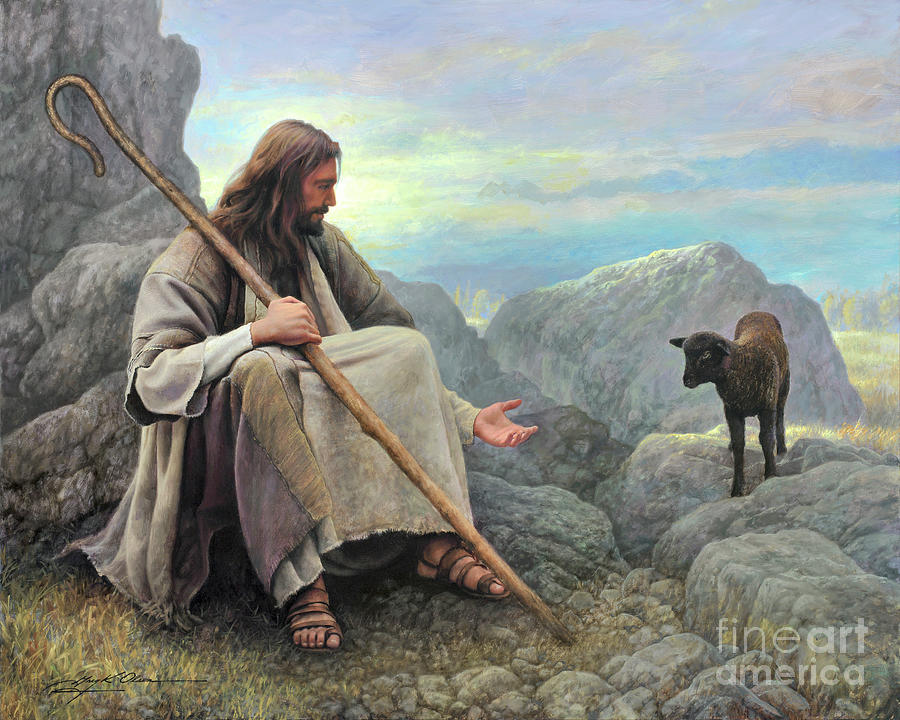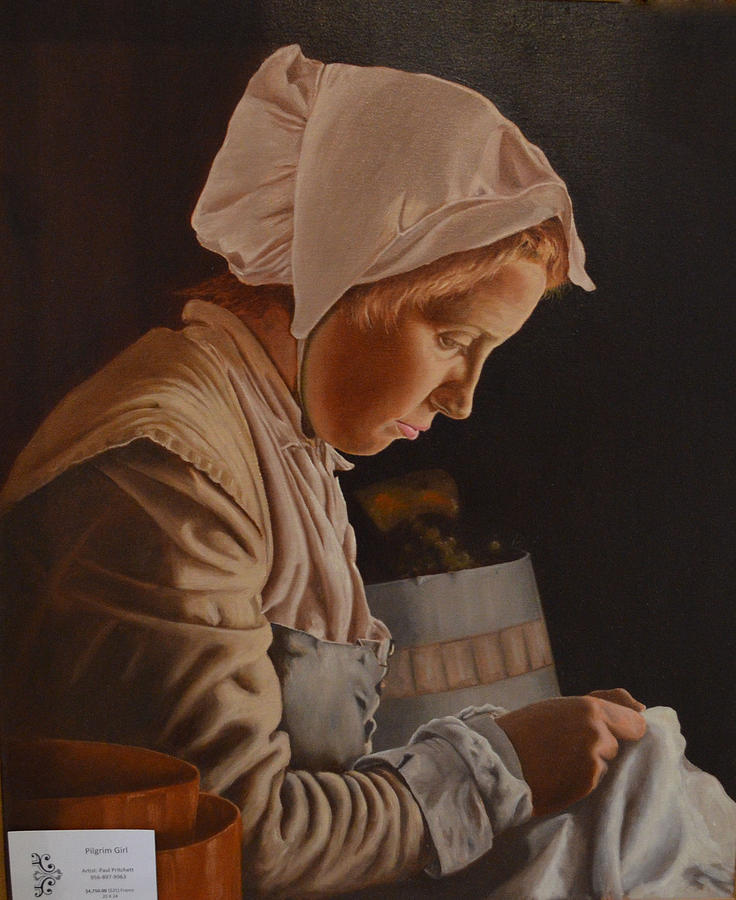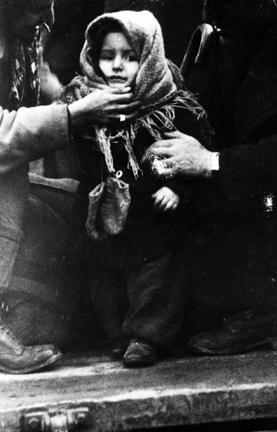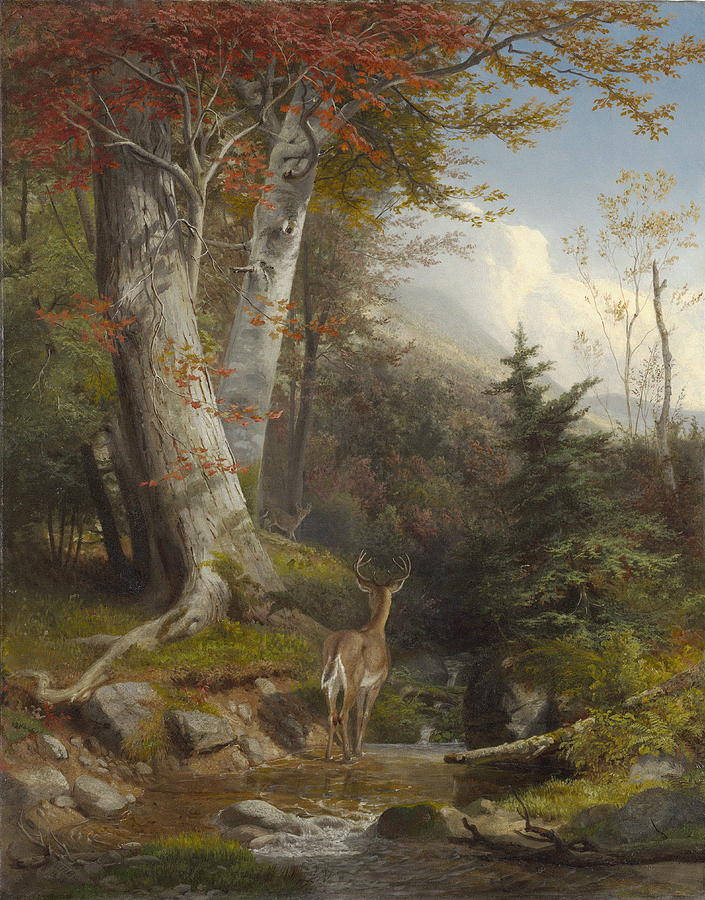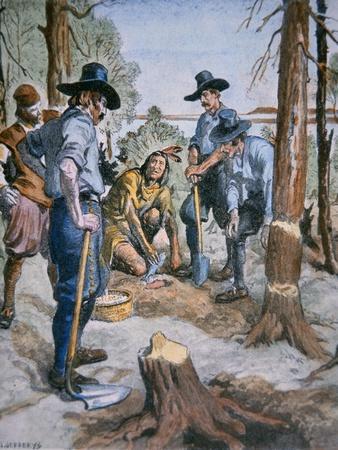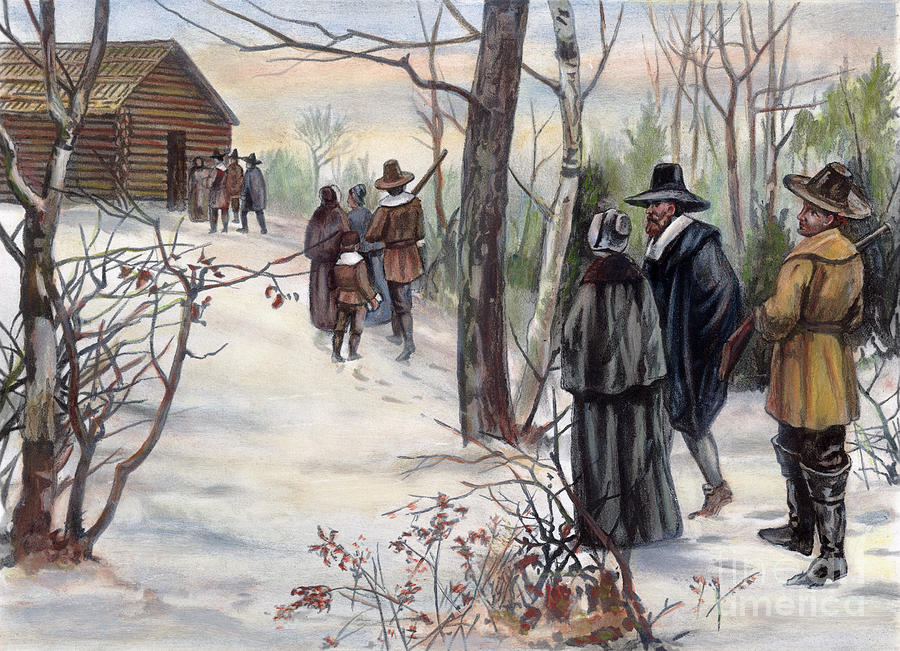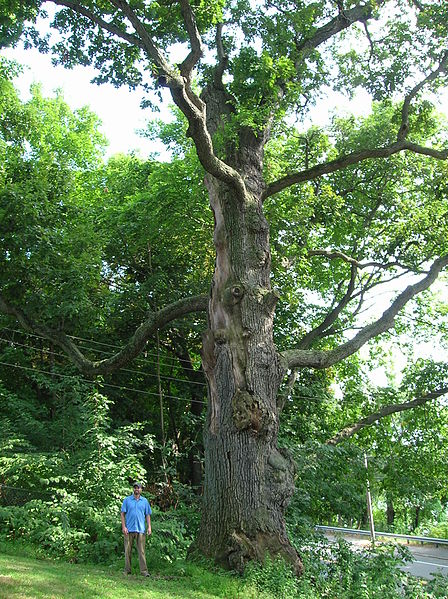And His disciples kept saying to Him, "You see the crowd pressing
hard around You from all sides and You ask, Who touched Me?"
(Mark 5:31)
That is an electrifying question when you realize who asked it, and
under what circumstances. You cannot escape the thrill of it-the
tingle of excitement that grips you- when you think of Christ
stopping in response to the touch of a poor nameless woman.
The words of this question are not
cold...abstract... inanimate...dead words.
They do not form a hook on which one could hang theories
or finely spun philosophies. No, they are too vital for that.
They march into the vestibule of your heart and knock on the door.
They suggest all kinds of daring thoughts to your weak faith.
They are like sparks falling into dry grass.
The setting of this text is a vivid picture-
colorful... appealing... and... of absorbing interest.
The incident takes place in a city street. It is a narrow, twisted
street, packed with a crowd of gesticulating, excited people,
surging past its bazaars and pavement stalls with all
the noise and confusion of an eastern market place.
A murmur of conversation grows louder as the procession pushes
its way through the narrow street. There is a sound like the chanting
of some mysterious dirge that frequently rises to an excited crescendo.
Here and there a voice rises distinctly out of the medley in what
might have been a prayer; but it is lost in crackling laughter,
rudely interrupted and drowned in the barking of dogs and
the argument and discussion of a crowd that loves to talk.
They are caught up in the infection of curiosity, and walking along,
in their very midst, wedged in the tightly packed procession, is,
Someone...
It is His face that will hold your gaze- and will haunt you long after the
sun has gone down, and the purple night, cool and starlit, has stilled
every noise in the city, while only the Syrian stars wink unsleeping.
One is aware of that face even in such a crowd.
Having once seen it, one sees it everywhere, for it is a haunting face-
an expression that will not fade...eyes whose fires never die out...
a face that lingers in memory.
Farmers were to see it as they followed the swaying plough,
and fishermen were to watch it dancing on the sun-flecked water.
The One Who walks like a king is named Jesus.
They call Him the Nazarene or the Galilean.
He called Himself the Son of Man.
The common people speak of Him softly, with deep affection,
such as the shepherds know, who carry the little lambs in their bosoms.
The beggars whisper His name in the streets as they pass,
and the children may be heard singing about Him.
His name has been breathed in prayer
and whispered at night under the stars.
He is known to the diseased, the human flotsam and jetsam
that shuffles in and out of the towns and drifts hopelessly
along the dusty highways of human misery.
His fame is trickled down to the streets of forgotten men, has
seeped into the shadowed refugees of the unremembered women.
It is Jesus of Nazareth.
Any outcast could tell you of Him. There are women whose lives
have been changed who could tell you of Him-but not without tears.
There are silent men-walking strangely as if unaccustomed to it-
who speak of Him with lights in their eyes.
It is Jesus Whom they are crowding to see.
They want to look on His face to see the quality of His expression
that seems to promise so much to the weary and the heavy-laden;
that look that seems to offer healing of mind and soul and body;
forgiveness of sin; another chance-a beginning again.
His look seemed to sing of tomorrow-a new tomorrow-in which
there should be no more pain,
no more suffering,
nor persecution,
nor cruelty,
nor hunger,
nor neglect,
nor disillusionments,
nor broken promises,
nor death.
At the request of one Jairus, a ruler of the synagogue,
He is on His way to restore to complete health a little girl.
He is on a mission of restoration, and the crowd is following Him
in order to see Him perform this miracle.
Speculation is rife. Opinion is divided.
There is an argument and excited discussion.
Some are declaring that He can do it; others are doubtful.
Some frankly say the attempt is bound to fail.
However, their curiosity is aroused, and it promises
to be an interesting experiment.
There is in the crowd another face-the face of a woman.
Strange that it should be so noticeable-yet not strange,
for it is a face that portrays great depths of human emotion.
There is so much in it-pale, pinched, and wan.
Great lines of suffering mar its beauty and sweetness,
and even now her lips are drawn in a thin line of agony.
The face is streaked with pain.
Her body is racked with acute suffering.
Who is she?
Well, some say her name is Martha, and some say Veronica.
Tradition gives her various names, but I cannot tell who she was.
It does not matter. Is it not enough that she was a woman in pain?
Call her Martha...or Mary...or Margaret...
or mother...or sister...or wife.
She is typical of countless cases of endless pain and suffering.
For twelve years she had suffered and twelve years is a long time!
Her malady seems to have been a pernicious hemorrhage, or
form of bleeding cancer. She had gone to many physicians and
was none better-but rather worse.
She had spent all that she had, and every new day
was another hopeless dawn.
Every sunset was stained with the blood of her pain.
She is typical of human despair-not only physical despair- but
spiritual despair as well. For her the world could offer no healing-
so she represents all the people who look everywhere for peace
of mind and heart-for hope and comfort-and find none.
She represents them all-whatever their wants, their fears,
their hopes, their pains.
For her apparently, there was no relief, no human aid.
Hers was a hopeless case-incurable!
After twelve years of treatment-she was no better.
What would we do?
We would probably send her to some home for the incurables, and
visiting clergymen would be embarrassed to know what to say to her.
Now this woman had heard of the Great Teacher, of His wonderful works.
She had heard the lepers talk and them that had been blind from birth and
now had thrown away their sticks, and looked around them with eyes
that flashed or filled with tears as they spoke His name.
She had heard what He had done for others. Surely He had power to bring
into the haven of health the lost explorers of the vast treasuries of pain?
Surely, He had the power to lift from the dust of disease the flowers
whose stems had been crushed or withered in the mildews of human misery?
As this thought burned itself into her mind, her faith was curiously stirred,
as it wrestled in the birth-throes of a great resolve.
It was daring-fantastic, perhaps.
Her heart thumped but it was worth trying.
It could only fail and she was no stranger to failure. There came to the
woman the assurance that if she could but touch Him-even only the
hem of His garment- she would be healed of her awful malady.
With a trembling finger she had touched Him with the touch of
mighty faith! Like an electric shock there surged back into the
shrunken veins, the panting lungs, and the bloodless flesh,
the rich glow of health and vitality.
Once again, a body had been redeemed and given life.
"Who touched Me?"
But, looking around Him, Christ stood still-His kind but searching
glance fell at last on the face of the woman who had done it.
His gaze held hers. Something passed between them, and she
told Him her story while His eyes were fixed upon her;
His eyes gave her confidence.
They seemed to promise all that she desired.
Her fear disappeared.
Then He answered her:
not in scorn at her action,
not in resentment,
not in anger at her presumption,
not in ridicule at her faith,
not in indignation at her audacity,
but in the sympathetic tones
of understanding love.
"Daughter, thy faith hath made thee whole.
Go in peace...and be healed of thy plague."
She had no money-only faith.
She did not meet Him in a house of worship.
She met Him on the street.
She had no private audience with the Lord.
She touched Him in a crowd.
She touched Him in faith-in desperate believing faith- and He stopped!
The touch of one anonymous woman in the crowd halted the Lord of glory.
This is the glorious truth of this incident.
She touched Him. So can we.
Excerpts from the sermon:
"The Touch Of Faith"
Reverend Peter Marshall Sr.
(1902-1949)
Scottish-American pastor and twice-appointed
Chaplain of the United States Senate
"Hem Of His Garment"
By Wayne Pascall
Image courtesy/Fine Art America
